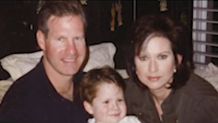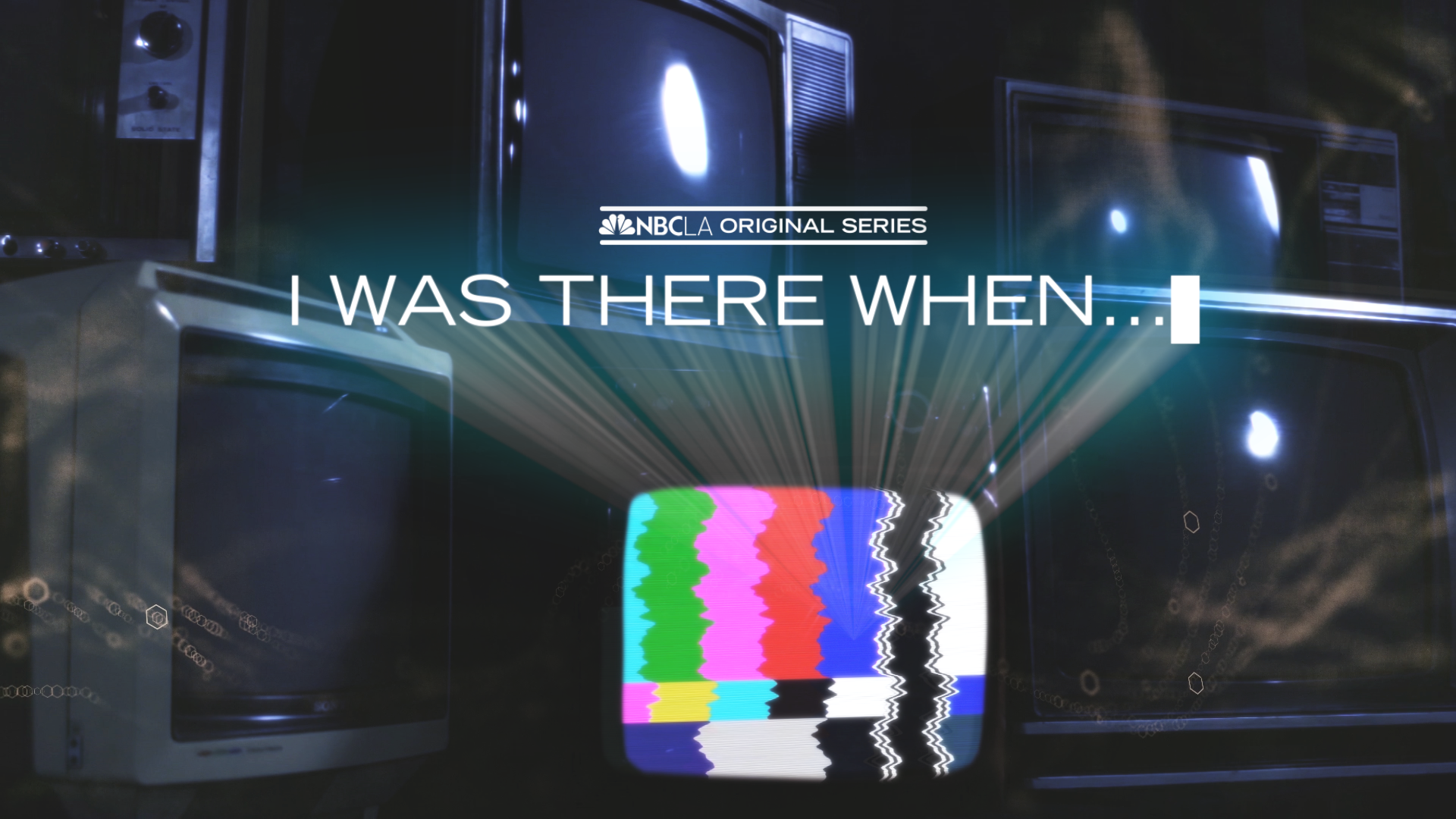Watch the full episode of 'I Was There When..." in the player above, as Colleen Williams remembers what it was like to cover one of the biggest stories, and what it felt like to be a part of something so huge.
In the early morning hours of July 27, 1996, spirits were running high in the newly-constructed Centennial Park, built especially for that summer's Olympic Games.
The hot and humid Atlanta day had been packed with Olympic events and cheering spectators. Reporters covering the event were just starting to unwind in the cooler night air, listening to a live band from Los Angeles play onstage, and relaxing after a hard day of work.
Then the bomb went off.
Get Southern California news, weather forecasts and entertainment stories to your inbox. Sign up for NBC LA newsletters.
"We were sitting outside, I happened to be there with my husband, and we were kind of just people watching and enjoying the evening," NBCLA anchor Colleen Williams recalled of the moments before the explosion, which took place 26 years ago Wednesday.
She reflected on the chaos of the day, and what it was like to cover such terrifying breaking news from the ground near the explosion -- as both an experienced reporter, and as a mother with a 3-year-old child at home.
"We were pretty close to leaving... and there was a loud explosion," she said. "It almost moved you back off your feet. That's the thing I think I remember most, was not necessarily the sound. It was the concussion that I felt in my chest."
It wasn't immediately clear what caused the disruption. But Williams's husband, in the military at the time, knew exactly what had happened.
"[He said] 'That's a bomb,' and we looked at him like 'Are you kidding me? That's not a bomb. This is Atlanta. Bombs don't go off in Atlanta,'" Williams recalled.
But he was certain, and as the evening wore on, it became clear he was right.
"I remember thinking, 'I've got a 3-year-old, who's with my mom. And his mom and dad are here right now. And that kind of scared me to death," Williams said.

Williams, along with much of the team from NBCLA who had traveled to Atlanta to cover the Olympic Games, were "less than a football field away" from where the bomb went off, just after 1 a.m.
It wasn't immediately clear how much damage had been done, who may have been hurt in the explosion, or whether more bombs were in the area waiting to detonate.
"We could see people scattering, we could see people with shock on their faces. I mean, we had shock on our faces," Williams remembered. "We just saw a mass of people running away from the blast site."
But as they started to leave the area, the team realized they had to tell the NBC station in Burbank what was going on.
"So we ran back in the studio," she said.
Because the phone lines weren't working, the only way to update the Burbank team was via computer.
While Williams coordinated with the station in California, security knocked on the door and insisted that the news crew evacuate.
"They were trying to get us out of there, and we were trying to be really quiet so they wouldn't know we were there," she said. "We were still hoping to go on the air, live, from that position. It didn't happen."
The security team threatened to arrest the NBCLA team if they didn't evacuate immediately -- so they did.
The change of location meant a different area, meant to be used for behind-the-scenes work, became an impromptu news set.
"En masse, we were all running to this site," Williams said.
The explosion was such huge news that the NBCLA team broke into primetime Olympics coverage to share information with the public -- a decision that "took someone from way on high" to be able to follow through. But that decision paid off.
"We had a photographer who took a picture of the bomb before it went off," Williams recalled. "Just happened to have a picture, wandering through, taking pictures in the park."
The photographer realized that a photo he took of a backpack underneath a bench was likely what caused the explosion.
"So then, all of a sudden, he wasn't available to us. Network wanted to talk to him, police wanted to talk to him, the FBI wanted to talk to him," Williams laughed.
Because the news crew was down a person while the photographer talked to authorities, Williams's husband became an impromptu cameraman for the night.
"He flies jets, he flies big planes," so he could probably handle a camera, Williams remembered the team deciding. "He was part of the team."
The explosion was made even more terrifying because two days before the Olympics Opening Ceremony in Atlanta, TWA flight 800 had exploded and crashed into the Atlantic Ocean off the coast of Long Island, Williams said.
All 230 people on board that plane died. While authorities later determined that the fuel tank on the plane had exploded, at the time, many were worried the explosion was an act of terrorism.
The Atlanta explosion was later determined to be the fault of a lone domestic terrorist, Eric Rudolph. Rudolph detonated three more bombs between the years of 1996 and 1998, in Atlanta, Georgia and Birmingham, Alabama, before he was captured in 2003.
He later pled guilty to federal charges related to the bombings and is currently serving multiple life sentences without chance of parole.
The Games continued after the explosion, to carry on the Olympic spirit. But the bombing left Williams pondering what could have changed if circumstances were just a little bit different that night.
"When you go through something like that, that's what you think about. You tend to put yourself in a position where, 'what if?'" Williams said. "I'd worked so hard to have a child, and he was three years old, and if I'd been any closer... it might have been different," she said.
But on a professional level, Williams is still proud, 26 years later, of the effort the NBCLA team put in to share the story.
"Instinctively as a newsperson, you want to get the information out," she said. "And we did that... Hats off to the team, we did it well that night."
"It was such a unified effort, with everyone on the team," she said. "We did it because it needed to be done."




